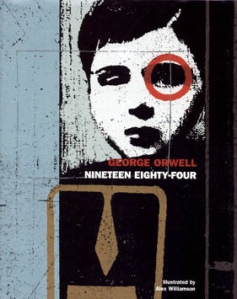JG Ballard, who died on Sunday, will be remembered mostly for his fiction As noted in today’s Guardian he left a legacy right across the spectum of the arts, but he also left behind some of the most apt aphorisms and witty one-liners of the last century. Here is a sample of the most memorable:
On the legacy of science fiction:
“Everything is becoming science fiction. From the margins of an almost invisible literature has sprung the intact reality of the 20th century.”
On fear of the future:
“I would sum up my fear about the future in one word: boring. And that’s my one fear: that everything has happened; nothing exciting or new or interesting is ever going to happen again… the future is just going to be a vast, conforming suburb of the soul.”
On the internet:
“Twenty years ago no one could have imagined the effects the Internet would have: entire relationships flourish, friendships prosper…there’s a vast new intimacy and accidental poetry, not to mention the weirdest porn. The entire human experience seems to unveil itself like the surface of a new planet.”
On rockets:
“Rockets “belong to the age of the 19th century, along with the huge steam engines. It’s brute-force ballistic technology that has nothing to do with what people recognise as the characteristic technology of this century: microprocessors, microwave data links – everything that goes in the world at the speed of an electron.”
On space travel:
“The suspicion dawned that Outer Space might be – dare one say it – boring. Having expended all these billions of dollars on getting to the Moon, we found on our arrival that there wasn’t very much to do there.”
On the American dream:
“The American Dream has run out of gas. The car has stopped. It no longer supplies the world with its images, its dreams, its fantasies. No more. It’s over. It supplies the world with its nightmares now: the Kennedy assassination, Watergate, Vietnam.”
On the American people:
“Americans are highly moralistic, and any kind of moral ambiguity irritates them. As a result they completely fail to understand themselves, which is one of their strengths.”
On American politics:
“The president of the United States bears about as much relationship to the real business of running America as does Colonel Sanders to the business of frying chicken.”
On his night at the Oscars:
“A wonderful night for any novelist, and a reminder of the limits of the printed word. Sitting with the sober British contingent, surrounded by everyone from Dolly Parton to Sean Connery, I thought Spielberg’s film would be drowned by the shimmer of mink and the diamond glitter. But once the curtains parted the audience was gripped. Chevy Chase, sitting next to me, seemed to think he was watching a newsreel, crying: `Oh, oh . . . !’ and leaping out of his seat as if ready to rush the screen in defense of young [Christian] Bale.”
On the 20th century:
“The marriage of reason and nightmare which has dominated the 20th century has given birth to an ever more ambiguous world. Across the communications landscape move the specters of sinister technologies and the dreams that money can buy.”
On novel writing:
“Any fool can write a novel but it takes real genius to sell it. “
On life:
“If you can smell garlic, everything is all right.”
share this ———————–
 ::
::  ::
::  ::
::  ::
::  ::
::  ::
::  ::
::  ::
::  ::
:: 



































Samppa 2:10 pm on January 22, 2013 Permalink |
Why? Don´t remember who many years have passed? Was it 2004? When it was Euro football or such? You teached me the essence of this writing, in some very lonely conversation in now passed way bar in Porvoo Finland. And that has still strugged me till today.